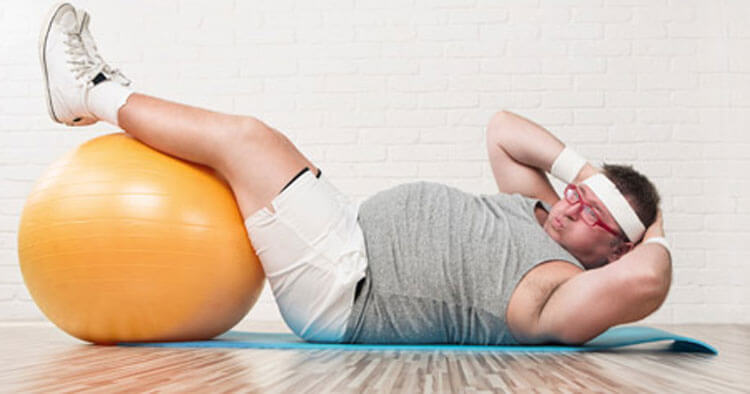Back and Joint Pain
Knee Pain And Weight Loss
Carrying Extra Body Fat Increases The Risk Of Developing Knee Problems
Carrying extra body weight puts individuals at a greater risk of experiencing knee pain for a number of reasons. Some of the possible reasons involved in the relationship between knee complaints and obesity include:
- The increased pressure placed on the articular knee cartilage and menisci.
- Carrying additional body fat can also lead to the releases of a hormone called leptin. It is thought by some that the hormone leptin can play a role in the development of osteoarthritis.
- Body fat can release substances that promote inflammation in your body, the presence of persistent inflammation in and around a joint can have a significant role in contributing to cartilage damage seen in osteoarthritis.
- It is also hypothesized that obese individuals can have circulatory problems, these circulatory problems can influence the blood supply to the cartilage in the knee, negatively influencing regeneration and tissue to repair in the knee.
How Can Weight Loss Reduce Knee Pain Risk
Even small amounts of weight loss can reduce an individuals risk of developing knee problems and associated knee pain. Some studies have indicated that weight loss actually has the ability to substantially reduce patient reports of knee pain. There is research suggesting for every 5kg weight loss, risk of knee problems drops by 50% (conversely, the opposite happens with every 5kg of weight gain). Therefore weight loss and avoidance of age related weight gain potentially offers an important solution in the treatment and long term management of knee pain.
Can Short Term Weight Gain Such As During Pregnancy Cause Knee Pain?
Any interesting question can then be posed, with regard to pregnancy associated weight gain and any relationship between this and the potential cause of pregnancy related knee pain. If you take in to account that the average weight gain during pregnancy is around 12.5kg and then suggest an average time taken to lose said “baby-weight” postpartum of approximately 6 months. And subsequently combine these figures with an average woman having between 2-3 children in their lifetime, then this potentially makes for a few years in an adult woman’s life where there will be a statistically significant increase in the load on her knee (given the above mentioned 5kg/50% risk stat.) and subsequently a potential increase in the long term risk of developing knee pain should women have multiple births, or battle to shake their baby weight postpartum.
Combine any pregnancy related weight gain with the associated stretching/de-conditioning of core muscles and temporary increased soft tissue laxity of supportive structures related to hormones released during pregnancy. It should come as no surprise that many women can suffer with some form of knee pain either during late stage pregnancy, or when returning to activity postpartum. Women who choose to continue running throughout pregnancy, or returning to running or other high impact loading activities immediately post labour may be more at risk of developing knee pain. Now I have to say this is all completely hypothetical, and easy for a male to sit on his high horse and preach post-pregnancy weight loss and abstinence from high load activities during late pregnancy and early postpartum, but this is purely food for thought when interpreting some of the research on obesity and knee pain, and applying it to another demographic . In light of the above, it could be suggested if you have a history of knee pain, or simply wanted to potentially reduce the risk of developing knee pain, then when returning to exercise following pregnancy it may be wise to take care to:
- Work on restoring your trunk strength before returning to any high impact type exercise so you can do some with better postural control.
- Again before carrying out any significant amounts of high impact exercise like running and jumping it may be sensible to have have “shaken off” the majority of your baby weight and prior to this make lower impact choices, or create a more balanced exercise regime that isn’t exclusively made up of heavy leg weights and impact activities.
- Make sure you wear appropriate footwear for your chosen activity and foot type, doing so can help achieve appropriate support and cushion for your joints.
Disclaimer: Sydney Physio Clinic does not endorse any treatments, procedures, products mentioned. This information is provided as an educational service and is not intended to serve as medical advice. Anyone seeking specific advice or assistance regarding Knee Pain And Weight Loss should consult his or her general practitioner or physiotherapist or suitably skilled practitioner.


